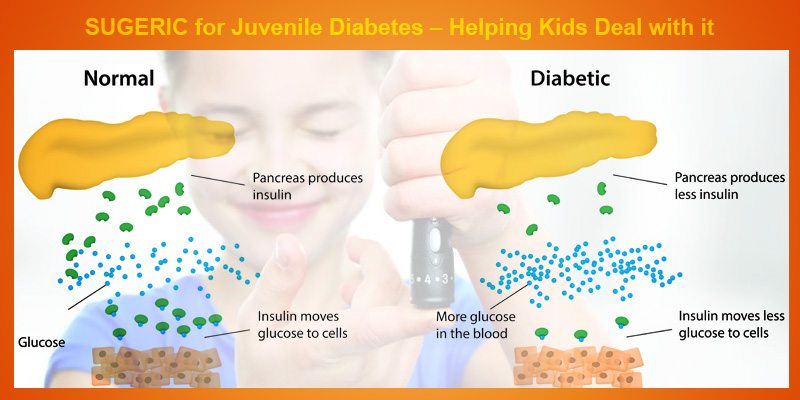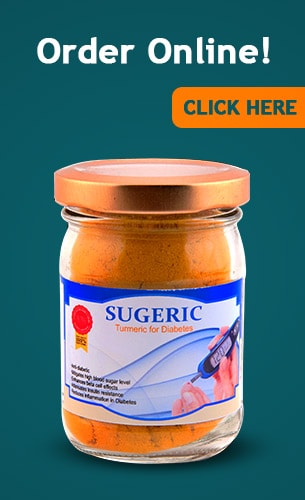Juvenile Diabetes – Helping Kids Deal with it

Juvenile diabetes or Type 1 diabetes amongst children is on a rise in India. As on today, India is only second to the United States as far as the number of children suffering from juvenile diabetes is concerned and this number is increasing at the rate of 3% each year. While it is a myth that consuming too much sugar leads to children developing Type 1 diabetes, it is true that effective management of this disease through proper diet control and exercise is possible. However, this is something that most parents fail to teach their diabetic kids.
What is Type 1 Diabetes?
Type 1 Diabetes is an autoimmune disease in which the pancreas stops producing insulin altogether which results in a high level of sugar in the blood since insulin is required to break down the sugar into energy. The pancreas stops producing insulin because the immune system starts releasing antibodies that destroy islet beta cells which are responsible for manufacturing insulin in the pancreas.
Early Symptoms of Type1 diabetes in children
- Fatigue – When your child’s body is unable to convert sugar into energy, he/she is bound to feel tired throughout the day. This is a sign of Type 1 Diabetes.
- Persistent hankering for food but still losing weight. As your child’s body is not getting the required energy it will keep hankering for more food but this will not lead to weight gain because the food ingested is not being broken down by the body.
- Yeast infection – This is a symptom that will present itself in babies who are suffering from Type 1 diabetes.
- Fruity smelling breath – This is a sign that there is excess sugar in the blood stream.
- Irritability, moodiness and restlessness are all signs of Type 1 diabetes.
Advanced Symptoms of Type 1 Diabetes
If Type1 diabetes or Juvenile diabetes goes undetected for a prolonged period, the following conditions may occur:
- Chemicals known as ketones start growing in the child’s blood causing stomach aches, nausea, breathing troubles, loss of consciousness and vomiting. This is known as diabetic ketoacidosis
- Kidney damage is also a common long term outcome of undetected Type 1 diabetes.
Managing Type 1 diabetes or Juvenile diabetes in kids:
1) Monitor their blood sugar levels regularly so that they do not experience hyperglycemia.
2) Administer insulin shots regularly without fail.
3) Provide kids with a balanced diet that includes all the required nutrients without excessive sugar or starch. This will not only help in managing their diabetes but also help in inculcating healthy eating habits.
4) Include physical exercise in their daily routine so as to incorporate enough activity needed to keep their blood sugar level in control.
5) Include curcumin in their diet in the form of a supplement.
How does curcumin help in managing Juvenile diabetes or Type1 diabetes?
1) Curcumin has well researched and documented anti-hyperglycemic properties that proactively avoid hyperglycemia. It also contains insulin sensitizer properties that help the body suppress antibodies that inhibit the production of insulin.
2) The anti-inflammatory and antioxidant properties of curcumin counter processes that cause the pancreatic beta cells to die in type 1 diabetes.
3) Its anti-inflammatory properties keep any diabetes related inflammation to a minimum.
4) It helps in reducing oxidative stress by keeping a check on the production of free radicals.
Bagdara Farms have a unique product just for diabetics or for juvenile diabetes. It is known as Sugeric and even kids can have it because it is made of 100% natural and organic curcumin. It is free from any chemicals as it is grown in a pure natural environment without the use of chemical fertilizers and pesticides.
Sugeric should be consumed once every day in the form of a concoction. To make this concoction add ½ a teaspoon of Sugeric, a pinch of black pepper and coconut milk and heat it. The black pepper in this concoction increases the bioavailability of curcumin. This is important because by itself curcumin is very difficult for the body to absorb. Piperine in black pepper allows the curcumin supplement to get properly absorbed.
Click here for more details : https://www.ncbi.nlm.nih.gov/pubmed/29164155


